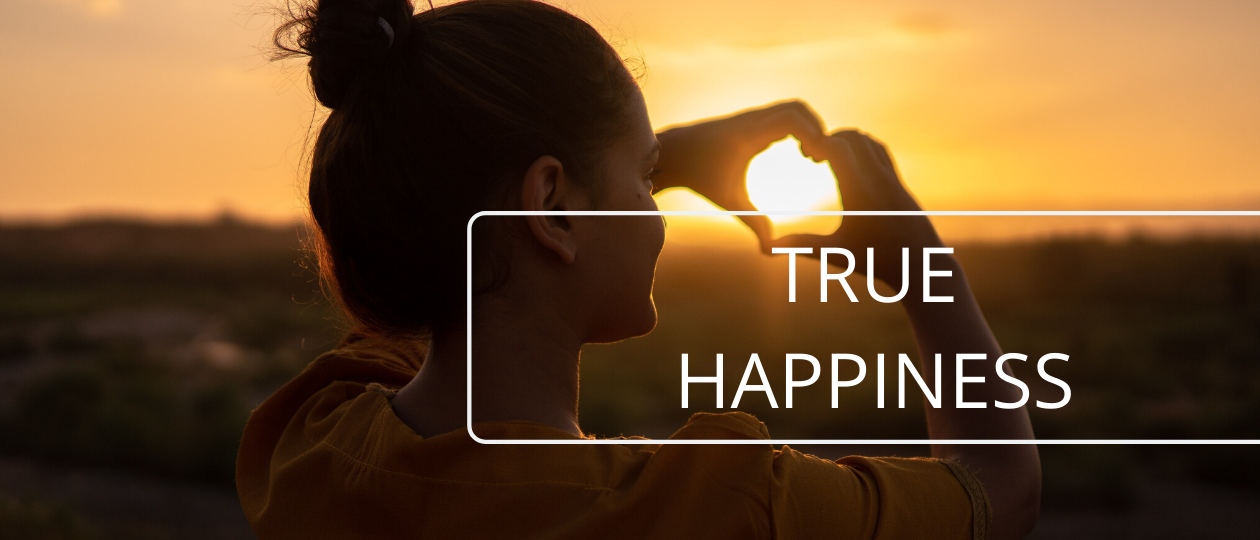True Happiness
Over the last forty years or so, I’ve seen many surveys and polls on what people want most in life, and the majority of them agree on one simple answer: happiness. But in my lifetime, I’ve seen that actually finding it is a terrible struggle for most people. Although modern medicine has greatly extended our lives, we’re taking more medication and receiving more treatment than ever before, so although we’re surviving, we’re not exactly healthy. On the emotional side of things, counseling tells a similar story. Far more people are participating now than ever before, and while it can help people cope with their problems, it typically doesn’t make an unhappy person happy, even after months or years.
Today, I want to talk about how to find what is probably the most desired thing on earth—which is not you might think of when you think of happiness. I’m convinced that what we’re really after is not the ecstatic, “I just won the lottery” joy that comes from receiving unexpectedly good news or having a major problem go away. Those things are just circumstances. The real thing is quieter, but also stronger and more lasting.
Dr. Dan Gilbert, a professor of psychology at Harvard University, wrote a wonderful book called Stumbling on Happiness describing his research on the university campus. In it, he discovered that the students who lived with an external goal in mind and focused on changing their circumstances immediately entered a state of chronic physiological stress. If you've been following me a while, you know just how dangerous that is. The Center for Disease Control claims that 95 percent of all illness and disease is stress-related, and many other doctors and researchers go even farther than that.
On the other hand, the students that lived for internal circumstances, things, like love, joy, and peace, were much less stressed, and happier and healthier as a result. I can give another example of this same concept from my own, firsthand research. Over the years, I’ve asked a number of veterans who have been through battle, many of whom were wounded at some point, whether they would do it all again. Most of them have told me the same thing. "I would never choose to go through it all again unless that was the only way I could meet the people I went through it with. If that’s the only way for me to keep those relationships, I’d do it again every time.” People who go through those sorts of things together tend to become closer than brothers. The relationships were more important than the circumstances that came with them.
Consider recent events. Even though the COVID virus has taken a lot of lives, caused plenty of suffering and enormous economic damage, from what I've seen it has actually driven us closer together rather than further apart. We've developed a new appreciation for each other's company, countless people are donating their time or money to bring relief to those in need, and everyone from Amazon to my son's video-game services has been finding little ways to make people's lives easier and more pleasant in our current, strange circumstances. Now compare that to the recent tragedy of George Floyd. This was only one life, statistically insignificant compared to the number of lives affected by COVID, yet the reaction has been like nothing I've seen attached to the virus. Why? Because it was a violation of a relationship. A relationship between communities, rather than individuals, but still a relationship.
One of the defining quotes from Dr. Gilbert’s book is this: “Expectations are a happiness killer.” The trouble with expectations is that when we form them, our subconscious mind tends to lie to us. Let’s say you decide you want pizza for lunch. Your imagination rifles through your memories and creates an image of what that lunch will be like—probably based on good memories you have of pizza. You think of an easy drive, light traffic, and of how good that pizza will taste. So when the traffic isn’t so light, or the pizza is a little bit cold, it doesn’t affect you so much because the situation is unreasonable, but because you feel like things weren’t supposed to happen that way.
This may sound strange, but the key to recognizing the difference in your own life is pain. Probably the most famous sermon ever given is Jesus’ sermon on the mount. In it, He talks a bit about the meek, the mourning, the poor, the attacked. Basically, people who suffer—and He calls these people blessed. Think again of the veterans who were willing to endure incredible suffering for the sake of the people they loved. The fact is, you can’t have love without exposing yourself to some level of pain, but too many of us are still living as children, with seeking pleasure and avoiding pain as our highest priority. If you want to find true happiness, your focus has to change. You have to be willing to accept some pain in pursuit of the love that will make you happy as nothing else can.
Have a blessed, wonderful day!
Alex Loyd




Add a Comment